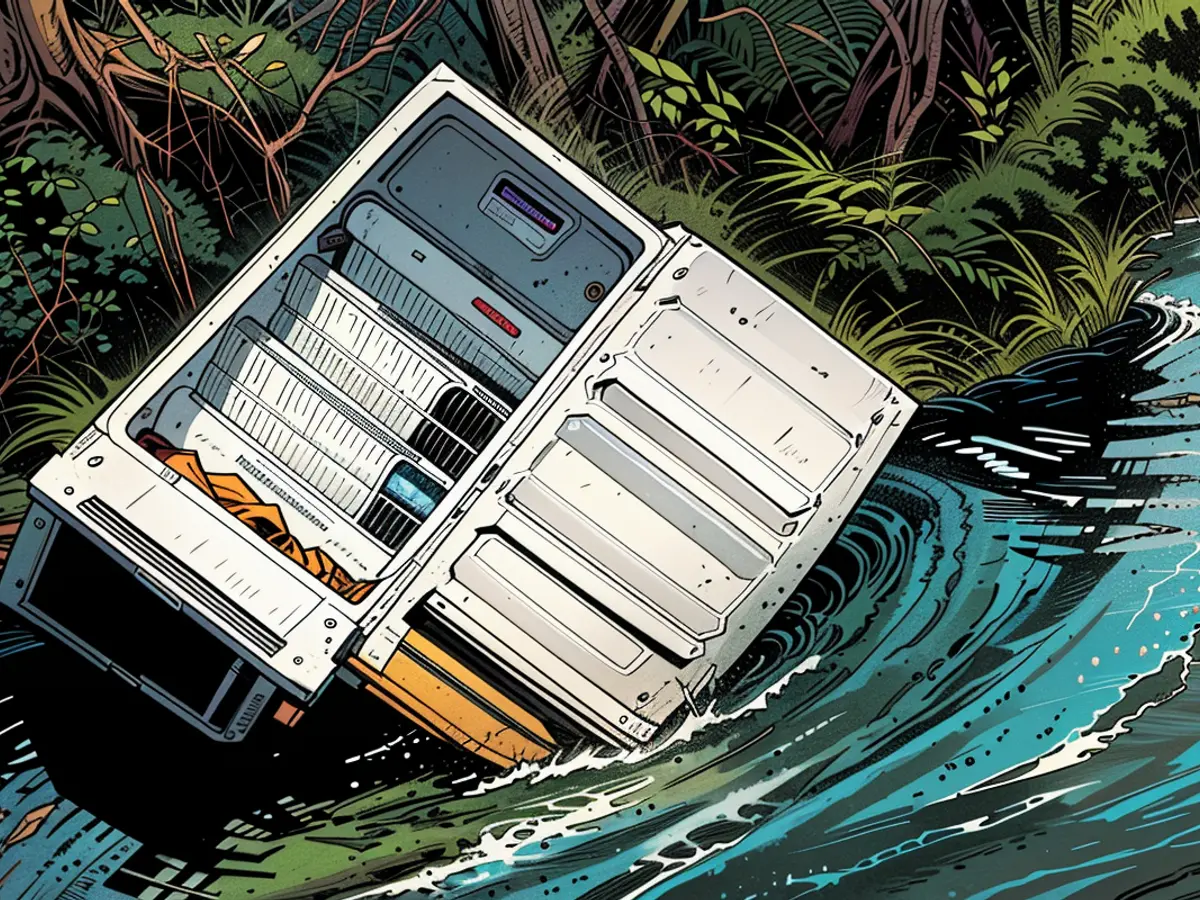Potential risks of food poisoning arise following extreme weather conditions. Here's how to safeguard yourself.
After natural disasters, there's an increased chance of foodborne illnesses such as salmonella and E. coli, as suggested by the US Centers for Disease Control and Prevention, due to power outages affecting cold storage.
If your home has recently experienced a power outage, here are some suggestions to preserve your food:
Keep your refrigerator door closed
Typically, refrigerators should be set to 40 degrees Fahrenheit or lower and freezers to 0 degrees Fahrenheit or below, as suggested by the CDC. In case of a power outage, you have a limited time to stop food from spoiling.
“Bacteria grow rapidly between 40 degrees Fahrenheit and 140 degrees Fahrenheit,” explained Dr. Leana Wen of CNN, “Refrigerators can maintain food's freshness if it's been under four hours and the door wasn't opened.”
To guarantee the appropriate temperature, the CDC advises using a food thermometer.
Freezers can prolong storage
Food stored in a freezer at 0 degrees Fahrenheit can be safely refrozen or cooked as long as it remains below the critical 40-degree mark, according to the CDC.
Once power is cut off, a full freezer maintains a safe temperature for 48 hours with the door closed. If it's half full, however, that time could be reduced to 24 hours – again, only if the door remains shut. This is why experts advise keeping refrigerator usage to a minimum.
Some individuals might think about putting foods in the freezer to buy more time. Bill Marler, a food safety attorney in Seattle, suggested some considerations:
“If you do this, you’re essentially introducing warmer food into a cold environment, just like if you put hot food in the refrigerator,” he warned. “This raises the freezer's temperature and lowers the length of time food can remain safe.”
So as to know when food is no longer safe, the CDC and other food experts abide by the following rule: “When in doubt, throw it out.”
Certain foods carry additional risks
Pre-packed meals and ready-to-eat foods can pose particular challenges when it comes to food safety.
“Items like deli meals, cold cuts, hot dogs, and even certain types of soft cheeses can be linked to listeria,” Marler mentioned. “Vegetables and fruits can be a little simpler, since they tell you when they're not good to eat. But with pre-made foods, it can be more difficult to tell.”
He recommended avoiding cross-contamination that may complicate a post-power outage refrigerator cleanout.
“Don't let hot dog juice contaminate other foods, and store meats – even cooked meats – separately from fruits and vegetables and the like.”
Keeping foods separate from one another is a practice that should start at the grocery store, according to the CDC. They should also be kept in separate areas of the refrigerator every day, regardless of the weather.
Cooked doesn't ensure safety
While items like milk and raw meat are the first to consider when clearing out a too-warm fridge, Wen stressed the importance of not neglecting cooked items.
“Cooked food should not be left out at room temperature for more than two hours. Leftovers that cannot be kept at 40 degrees F or lower should be discarded,” she said.
The CDC also offers a helpful chart detailing how long foods can last in a functioning refrigerator, whether open or closed.
Individuals with pre-existing conditions should be extra cautious
The consequences of foodborne illnesses can range from minor discomfort to life-threatening complications. People with pre-existing conditions may be more susceptible to severe illness, the CDC warned.
“It depends on the type of contamination, but pregnant women, young children, the elderly, and individuals with weakened immune systems are more likely to contract serious diseases, like listeria, due to improper food handling or storage,” Marler said.
If you are part of one of these high-risk groups, the CDC advises paying extra attention to food safety procedures during purchasing, preparing, cooking, and storing your food.
In the event of a power outage, maintaining the appropriate temperature in your refrigerator and freezer is crucial for preserving food wellness and health, as recommended by the CDC. After a power outage, it's crucial to check the temperature of your refrigerator and freezer using a food thermometer to ensure they're below the critical 40-degree mark, as advised by the CDC.









